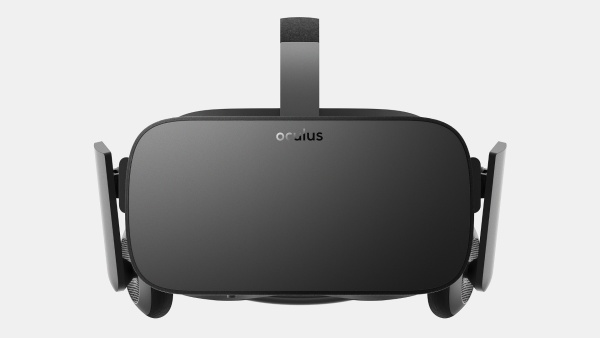Oculus has faced a lot of criticism recently, largely due to the fact that the company has been buying timed exclusivity for a lot of upcoming VR games, some of which were previously going to launch on the HTC Vive and Oculus Rift at the same time. Now, Oculus's head of content, Jason Rubin, has spoken out, defending the company's strategy and claiming that it is actually good for the VR Industry in the long run.
Oculus has been pushing money into the VR ecosystem in order to speed up growth, according to Rubin, who likened VR's current position to that of the PC back in the early days:”If you look at the PC ecosystem, it's grown over decades. I remember the first games that I was making we were putting in ziplock bags – this would've been early '80s, '84, and selling for about the same price to handfuls of people. There was certainly national publishing, but if you sold 100,000 units it was a massive hit because there just weren't that many people playing games. And so you could only spend so much on games, so the games were smaller”, Rubin said to GamesIndustry.biz.
“Over decades of time, you sold a good game, it made more people interested in gaming, so more people bought PCs to play games, which brought more developers to it, which made better games, and over decades that's built up to $100 million games. We have these massive games out there now that everybody loves, everybody wants to play, that wouldn't exist unless that ecosystem had built up over decades.”
Rubin went on to explain that we now live in a time where high-budget games are the norm but developers aren't ready to spend triple A amounts of money on a VR title yet as the market is still unproven. “As a developer looks at a multi-million dollar production in VR right now, they say there's no way that will earn its money back in any reasonable amount of time, so instead I'll go make a non-VR PC game of that scale if I want to because that's a better bet. We don't like that. We don't want it to be $500,000 games this year, million dollar games next year, two million dollar…and take decades or at least a decade to build itself to the point where you can afford bigger games.”
To speed up this process and allow for more expensive projects to get off the ground from the get-go, Oculus has been offering to help out with development costs in exchange for timed exclusivity on the Oculus Store. By kickstarting development in this way, Oculus is hoping to attract more customers, which will lead to more developers eventually deciding that they can afford to splurge on a more expensive VR game on their own as the user-base is there and waiting. In some cases, Oculus is also helping developers finish up their games properly:
“In a lot of cases, we're looking at software that's in process, where the developers are running to the end of their logical stream of cash and they come to us and they say, ‘I want to put this in your store,' and we say, ‘That's awesome. However, we can tell it's kind of unfinished.' And they're like, ‘We can't finish it. We don't have the money to finish it.' And we say, ‘Well, how about we give you a little extra to finish it and in exchange you bring it out as an exclusive in our store for a limited amount of time, continue to develop for all platforms, and then put it out on all platforms?' The better game gets to all consumers in that case.”
If you have been following VR news recently, then the full GamesIndustry interview is well worth a read, Rubin puts things into perspective quite well and it is nice to actually hear Oculus's side of the story.
KitGuru Says: Nobody wants to see the VR market turn out the same way as consoles, where you have to buy specific hardware to play specific games. So far, Oculus's messaging has been that games aren't exclusive to the Rift, they are exclusive to the Oculus Store, so the easiest fix here would be to just put the store on other headsets, like the Vive. That said, I can still see where Oculus is coming from here. Where do you guys stand on all of this? Do you think Oculus's plan to boost VR games is good for the industry or is timed exclusivity a deal breaker for you?
 KitGuru KitGuru.net – Tech News | Hardware News | Hardware Reviews | IOS | Mobile | Gaming | Graphics Cards
KitGuru KitGuru.net – Tech News | Hardware News | Hardware Reviews | IOS | Mobile | Gaming | Graphics Cards




Yea I do not think this form of VR will be here for decades like the PC industry has. As time goes on the VR fad will fade into nothingness like it has a few times before. What they need to do is reinvent what VR is first thing is to get rid of the big ugly head gear that not only looks stupid to others in the room but it is tethered to a PC that limits your movement. They need to reinvent by making tech that will give you room scale VR that does not require you to look like a fool while playing a game or whatever. The tech is there and waiting to be explored by someone smart enough to make it happen and of coarse that is not me..lol Room scale VR is what will be the end game and the holy grail of what VR will or should be by now. VR will not be part of my gaming experience until they get rid of the head gear that holds you back from a truely mind shattering experience & yes I have tried the Vive & yes it was ok but it is not there as of yet and same goes for the Oculus maybe in another 5 to 10 years if VR lives that long this time around.
forgot to mention timed exclusive’s they may suck when you can not get the same games on all platforms but everybody seems to do it now days. It happens a lot in the console world but I dot think it would happen in the VR world. If a game dev is making a game for multi platforms for the VR devices from the start then there should not be a exclusive for one platform or another. This is how the eco system gets fragmented and not worth a pinch of **********. If a dev wants to take money to get help with getting a game out the door then it should approach all companies involved or the other way around. Because if as the guy in the story is right then these dev need all the help they can get so their games get released on time and are fully ready and finished for release. From what he was saying sounds like big wig double talk to try to justify their need to want all the game only on their platform and everyone else can wait but then again this is FB we are talking about here so it does not surprise me very much.
Oculus is now proving to be totally untrustworthy when it comes to keeping their word. They previously stated that it would not push for exclusives but has since started to do bribe developers to make exclusives. Fragmentation is the only result. It also kind of shows that they are loosing faith in their own product and are now using Zukerberg funded marketing strong-arm tactics instead of free market competition.
Oh, and marketing bullshit, still sounds like bullshit Mr Rubin.
Sounds like you are a very self-conscious about looks… who cares what you look like when you can’t even see yourself?
The cable concern is valid, but wireless display tech only just got 1080p streaming at 30fps. It will be a while before we can stream of 2.5-4k at 90fps. I suspect lightweight PC backpacks will probably be what carry VR for the first few generations.
I am earning approximately six to eight thousand bucks /a month with an online job i found on internet. For those of you who are willing to do basic at home jobs for 2-5 h every day at your house and earn valuable profit while doing it… This is a job for you… TINY.PL/g9hw4
asdgasdgg
I currently profit in the range of 6.000-8.000 dollars on monthly basis with an online job. For everybody looking to work simple online work for 2h-5h daily from comfort of your home and earn decent profit for doing it… Try this gig CHILP.IT/45fc05a
rgw